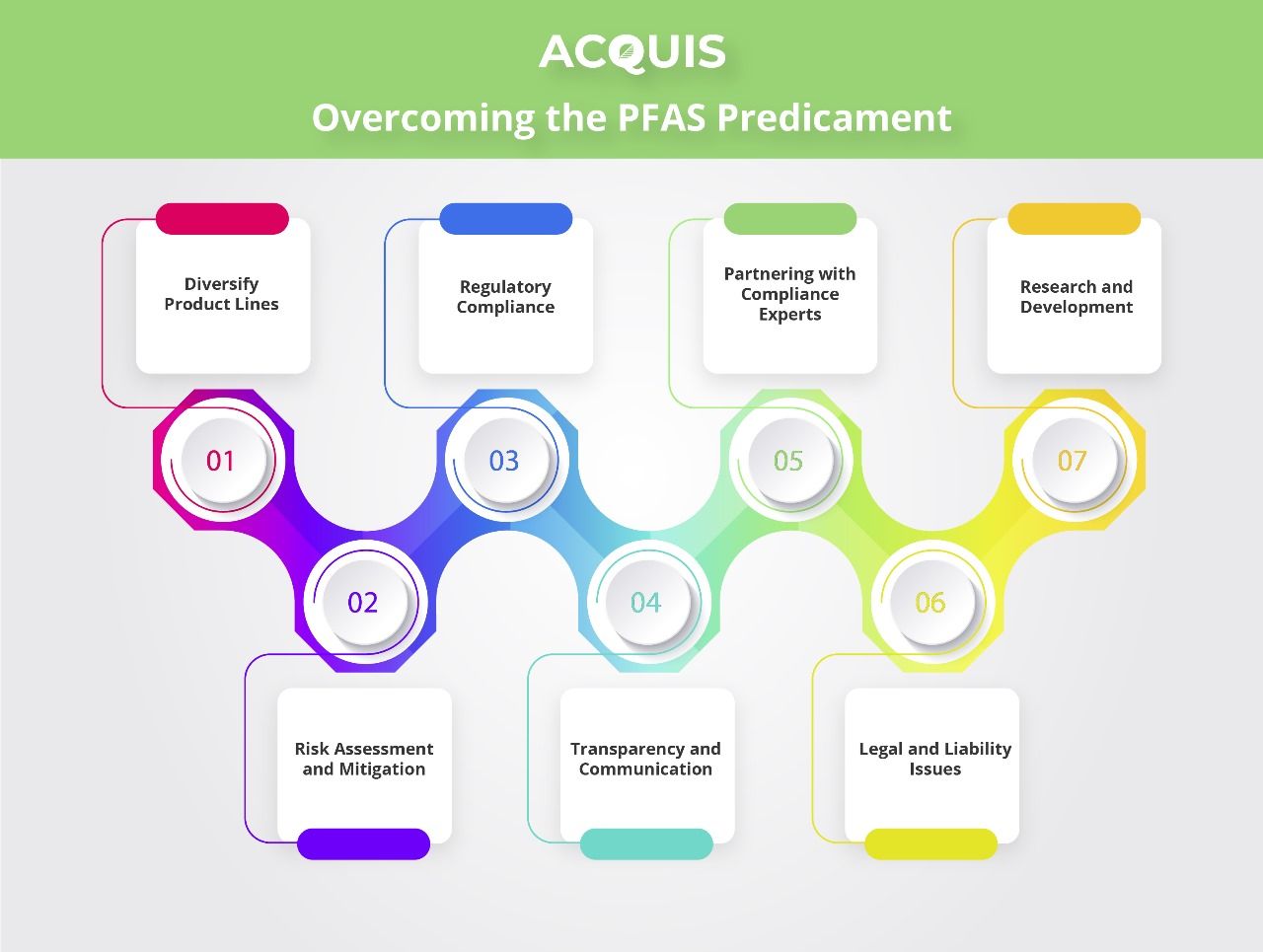Table of Contents
Per- and Polyfluoroalkyl Substances (PFAS) have emerged as a formidable challenge not only for public health and the environment but also for various industries.
Let's explore how PFAS is affecting these industries, and more importantly, how they can overcome the increasing liability concerns with the help of compliance experts.
The Growing Concern: PFAS in Industries
PFAS compounds, colloquially known as "forever chemicals," have found extensive use across industries like manufacturing, textiles, and the electronics sector. Their remarkable durability, however, translates into persistent environmental and health issues. With mounting evidence of harm, legal claims related to PFAS contamination have soared, casting a long shadow on industries involved.
The Toll on Industries
-
Manufacturing Industry: Manufacturers using PFAS in their processes face a double-edged sword. PFAS have been used in semiconductor manufacturing processes as anti-reflective coatings and processing aids due to their water- and grease-repellent properties. and have been used in various applications within the electronics and semiconductor industries due to their unique chemical properties. However, these industries are increasingly facing scrutiny and regulatory challenges related to PFAS contamination and usage.
-
Textile Industry: The textile industry's reliance on PFAS for stain and water resistance has come under scrutiny. The sector is confronting mounting legal challenges, increased regulations, and growing consumer demand for PFAS-free products.
-
Chemical Industry: Companies producing PFAS chemicals are facing increased scrutiny, regulatory pressure, and legal action. This has repercussions not only on their bottom line but also on the reputation of the chemical industry.
Overcoming the PFAS Predicament

-
Diversify Product Lines: Industries heavily reliant on PFAS should consider diversifying their product lines to include alternatives. Investing in research and development for PFAS-free substitutes can help mitigate future liability risks.
-
Risk Assessment and Mitigation: Companies should conduct comprehensive risk assessments to identify PFAS use in their operations. Once identified, they can implement mitigation measures, such as reducing PFAS usage and adopting better containment practices.
-
Regulatory Compliance: Keeping abreast of evolving regulations regarding PFAS is crucial. The electronics industry is subject to evolving regulations related to PFAS. Regulatory compliance is a key concern, and companies are working to understand and meet their obligations under regional and international regulations. Compliance efforts may include tracking PFAS usage, monitoring emissions, and implementing risk management measures to reduce environmental impacts.
-
Transparency and Communication: Open communication with stakeholders, including customers and investors, is vital. Providing transparent information on PFAS usage and efforts to minimize its impact can bolster trust and demonstrate a commitment to responsibility.
-
Partnering with Compliance Experts: Engaging compliance experts can provide invaluable guidance. These experts can help companies navigate the complex landscape of PFAS regulations, conduct thorough risk assessments, and develop comprehensive compliance strategies tailored to their specific industry.
-
Legal and Liability Issues: Industries should thoroughly review their insurance policies and engage in a dialogue with insurers about coverage for PFAS-related liabilities. Understanding policy limitations and potential disputes is key to effective risk management. Some insurance policies may exclude or limit coverage for PFAS-related losses.
-
Research and Development: Collaborate with research institutions and industry peers to develop and implement PFAS-free technologies and practices. Investing in research and innovation can not only reduce liability but also enhance competitiveness.
Conclusion
The PFAS predicament is a complex issue that affects various industries. While it presents challenges, it also offers opportunities for innovation and resilience. Industries must recognize the urgency of the situation and take proactive steps to address their PFAS-related liabilities. By diversifying, mitigating risks, complying with regulations, communicating transparently, partnering with compliance experts, and investing in research, they can navigate this challenging terrain and emerge stronger and more responsible in the face of PFAS concerns.
